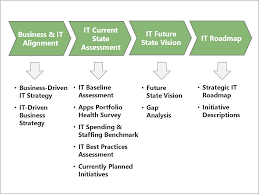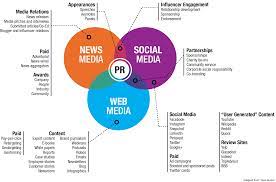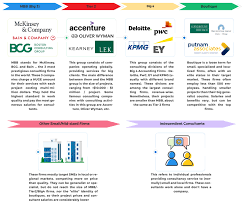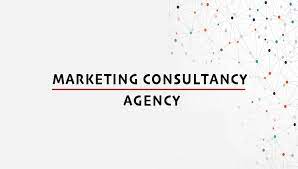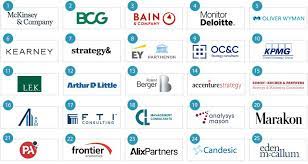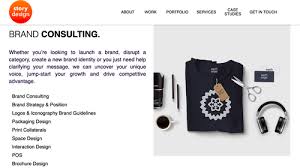Strategic Success: Unlocking Growth and Outperforming the Competition
Strategic: The Key to Unlocking Success
In today’s fast-paced and competitive business environment, having a clear and well-defined strategy is essential for any organization aiming to succeed. Strategic thinking and planning provide the roadmap that guides businesses towards their goals, helping them navigate challenges and seize opportunities along the way.
But what exactly does it mean to be strategic? Strategic thinking involves taking a step back from day-to-day operations and adopting a broader perspective. It requires analyzing the internal and external factors that impact an organization, understanding market trends, identifying strengths and weaknesses, and envisioning the desired future state.
A strategic approach allows businesses to align their resources, capabilities, and activities towards achieving specific objectives. By setting clear goals and defining the path to reach them, organizations can make informed decisions that maximize their chances of success.
One of the key benefits of being strategic is the ability to anticipate changes in the business landscape. By staying ahead of industry trends and customer demands, organizations can proactively adapt their strategies to stay relevant. This proactive approach enables businesses to seize new opportunities as they arise while minimizing risks.
Furthermore, a strategic mindset encourages innovation and creativity. It pushes organizations to think beyond traditional boundaries, explore new markets or product lines, and find unique ways to differentiate themselves from competitors. By continuously seeking innovative solutions, businesses can stay ahead of the curve and maintain a competitive edge.
Effective strategic planning also fosters collaboration within an organization. It brings different teams together under a shared vision, encouraging cross-functional cooperation. This collaborative approach not only enhances communication but also leverages diverse perspectives and expertise to develop comprehensive strategies that address multiple aspects of the business.
However, being strategic is not a one-time task; it requires continuous evaluation and adaptation. Regularly reviewing progress against objectives allows organizations to identify areas for improvement or potential course corrections. Flexibility is crucial in today’s dynamic business environment, as strategies may need adjustment based on changing circumstances or emerging opportunities.
In conclusion, being strategic is the foundation for success in today’s business world. It enables organizations to navigate challenges, seize opportunities, and stay ahead of the competition. By adopting a strategic mindset, businesses can align their resources and activities towards achieving their goals, while also fostering innovation, collaboration, and adaptability.
So, whether you’re a small startup or a large multinational corporation, investing time and effort into developing a strategic approach is key to unlocking your organization’s full potential. Embrace strategic thinking, plan for the future, and set your business on the path to success.
7 Benefits of Strategic Planning: Unlocking Success in the UK
- Helps to identify and focus on key objectives and goals.
- Allows for the development of an effective plan of action.
- Creates a competitive advantage in the market place.
- Enhances decision-making capabilities by providing clarity of thought and direction.
- Increases efficiency through better resource allocation and utilization of resources available to the organization or business.
- Improves communication between different departments or teams within an organization, leading to greater collaboration and team work towards a common goal or objective .
- Facilitates change management by allowing for more effective planning when changes need to be implemented quickly or over time as part of a wider strategy implementation process
Challenges of Strategic Planning: Time, Cost, and Implementation
- Strategic plans can be time-consuming and costly to develop.
- Strategic plans can become outdated quickly if the external environment changes rapidly.
- Strategic plans are often not implemented effectively, leading to wasted resources and missed opportunities.
Helps to identify and focus on key objectives and goals.
In the dynamic world of business, it’s easy to get caught up in a whirlwind of tasks and activities. Without a clear direction, organizations can find themselves drifting aimlessly, wasting precious resources and missing out on opportunities. This is where strategic thinking comes into play.
One of the greatest advantages of adopting a strategic approach is its ability to help identify and focus on key objectives and goals. By taking the time to analyze the internal and external factors that impact an organization, businesses can gain clarity on what truly matters.
Strategic thinking allows organizations to define their purpose and vision. It prompts them to ask important questions such as: What are our long-term goals? What do we want to achieve? By answering these questions, businesses can set meaningful objectives that align with their overall mission.
Once objectives are established, strategic planning provides a roadmap for achieving them. It breaks down larger goals into smaller, actionable steps. This allows organizations to prioritize their efforts and allocate resources efficiently towards what truly matters.
By focusing on key objectives, businesses can avoid spreading themselves too thin. They can streamline their activities and concentrate their energy on areas that have the greatest impact on their success. This laser-focused approach enables organizations to make better decisions about resource allocation, ensuring that time, money, and effort are invested where they will yield the highest return.
Moreover, having clear objectives helps align teams within an organization. When everyone understands what they are working towards, collaboration becomes more effective. Teams can coordinate their efforts towards shared goals, leveraging each other’s strengths and expertise along the way.
In addition to providing focus internally, strategic thinking also helps businesses communicate externally. Clear objectives create a compelling narrative for customers, investors, and stakeholders alike. It demonstrates a sense of purpose and direction that builds trust and confidence in the organization’s capabilities.
Furthermore, focusing on key objectives allows organizations to measure progress accurately. By defining specific metrics and milestones, businesses can track their performance and make necessary adjustments if they are falling short. This data-driven approach enables organizations to stay on track and continuously improve.
In conclusion, adopting a strategic mindset helps organizations identify and focus on key objectives and goals. It brings clarity to the chaos of daily operations, allowing businesses to prioritize their efforts and allocate resources effectively. By defining meaningful objectives, organizations can align their teams, communicate externally, and measure progress accurately. Ultimately, this strategic approach sets the stage for success in today’s competitive business landscape.
Allows for the development of an effective plan of action.
In the realm of business, having a well-thought-out plan of action is paramount to achieving success. This is where strategic thinking plays a crucial role. By adopting a strategic approach, organizations can develop an effective plan that guides their activities and maximizes their chances of achieving their objectives.
Strategic thinking involves taking a holistic view of the business landscape and analyzing various factors that impact an organization’s operations. It considers internal strengths and weaknesses, market trends, customer preferences, and competitive dynamics. By thoroughly understanding these elements, businesses can identify opportunities and potential threats.
With this knowledge in hand, organizations can then craft a plan of action that aligns with their goals and resources. A strategic plan outlines the steps required to achieve specific objectives, delineates responsibilities, sets deadlines, and allocates resources effectively.
By developing an effective plan through strategic thinking, businesses gain several advantages. Firstly, it provides clarity and direction to all stakeholders within the organization. Employees understand what needs to be done, how it should be done, and why it matters in the larger scheme of things. This shared understanding fosters alignment and empowers individuals to work towards a common purpose.
Secondly, a well-crafted plan allows for better resource allocation. With limited time, money, and manpower at their disposal, organizations must prioritize activities that offer the highest return on investment. Strategic thinking helps identify key areas where resources should be allocated to achieve the desired outcomes efficiently.
Moreover, having an effective plan enables businesses to anticipate potential obstacles or challenges along the way. By considering different scenarios during the planning stage, organizations can develop contingencies or alternative approaches to mitigate risks. This proactive mindset ensures that teams are prepared for any unforeseen circumstances that may arise during execution.
Lastly, an effective plan of action serves as a benchmark against which progress can be measured. Regular monitoring and evaluation allow organizations to assess whether they are on track towards their objectives or if adjustments are needed. This iterative process helps identify areas for improvement and provides valuable insights for future planning cycles.
In summary, strategic thinking allows organizations to develop an effective plan of action that serves as a roadmap towards success. It brings clarity, alignment, and direction to the entire organization, optimizes resource allocation, anticipates challenges, and enables continuous improvement. By embracing strategic thinking, businesses can navigate the complexities of today’s business landscape with confidence and purpose.
Creates a competitive advantage in the market place.
Creates a Competitive Advantage in the Marketplace: The Power of Strategic Thinking
In today’s highly competitive business landscape, organizations are constantly seeking ways to gain an edge over their rivals. One powerful advantage that strategic thinking offers is the ability to create a competitive advantage in the marketplace.
Strategic thinking involves carefully analyzing market dynamics, understanding customer needs and preferences, and identifying unique opportunities for growth. By taking a proactive approach to understanding the market, businesses can position themselves ahead of their competitors.
One way strategic thinking creates a competitive advantage is through differentiation. By understanding what sets their products or services apart from others in the market, businesses can develop strategies that highlight these unique qualities. Whether it’s superior quality, innovative features, exceptional customer service, or a combination of factors, strategic planning allows businesses to showcase their distinct value proposition to customers.
Moreover, strategic thinking helps organizations identify untapped market segments or niche markets that competitors may have overlooked. By focusing on these specialized areas, businesses can tailor their offerings to meet the specific needs of these customer groups. This targeted approach not only allows for better customer satisfaction but also reduces direct competition and increases market share.
Furthermore, strategic thinking enables businesses to anticipate and respond effectively to changes in the marketplace. By staying abreast of industry trends and emerging technologies, organizations can adapt their strategies accordingly. This agility ensures they are well-positioned to capitalize on new opportunities before competitors do.
Another aspect where strategic thinking creates a competitive advantage is resource allocation. By carefully assessing available resources and aligning them with key objectives, organizations can optimize their efficiency and effectiveness. This enables them to allocate resources strategically towards activities that provide the greatest return on investment while minimizing waste.
Additionally, being strategic fosters continuous improvement within an organization. Through ongoing evaluation and feedback mechanisms, businesses can identify areas where they can enhance their processes or offerings. This commitment to improvement allows them to stay ahead of competitors by constantly refining and innovating their products or services.
In conclusion, strategic thinking is a powerful tool for creating a competitive advantage in the marketplace. By differentiating themselves, targeting specific customer segments, adapting to market changes, optimizing resource allocation, and fostering continuous improvement, organizations can position themselves as leaders in their industry.
Investing in strategic planning and execution is crucial for businesses looking to thrive in today’s dynamic and competitive business environment. By embracing strategic thinking, organizations can not only gain a competitive edge but also build a sustainable foundation for long-term success.
Enhances decision-making capabilities by providing clarity of thought and direction.
Enhancing Decision-Making: The Power of Strategic Thinking
In the complex and ever-changing business landscape, making informed decisions is crucial for success. This is where strategic thinking shines, as it enhances decision-making capabilities by providing clarity of thought and direction.
Strategic thinking involves taking a holistic view of the organization, considering both internal and external factors that impact its operations. By analyzing market trends, competitive landscapes, and internal strengths and weaknesses, strategic thinking enables leaders to gain a comprehensive understanding of the current situation.
This deep understanding allows decision-makers to see the bigger picture and make well-informed choices. Strategic thinking helps cut through the noise and focus on what truly matters. It provides a clear vision of where the organization wants to go and aligns all decisions with that overarching goal.
One of the key benefits of strategic thinking is its ability to identify priorities. When faced with numerous options or competing demands, strategic thinking helps leaders determine which actions will have the greatest impact on achieving their objectives. It provides a framework for evaluating alternatives and selecting the most effective course of action.
Furthermore, strategic thinking encourages proactive decision-making. By anticipating potential challenges or opportunities, leaders can develop contingency plans or seize advantageous situations before they arise. This forward-thinking approach minimizes reactive decision-making based solely on immediate circumstances, allowing organizations to stay ahead in a rapidly changing environment.
Another advantage of strategic thinking is its ability to mitigate risks. By thoroughly assessing potential risks and considering alternative scenarios, leaders can make decisions that minimize negative outcomes or prepare contingencies to address them effectively. Strategic thinking allows for a more comprehensive evaluation of potential risks and rewards associated with different choices.
Moreover, strategic thinking fosters collaboration within an organization. By involving key stakeholders in the decision-making process, leaders can tap into diverse perspectives and expertise. This collaborative approach not only enriches decision-making but also creates a sense of ownership among team members, leading to increased commitment towards executing the chosen strategy.
In conclusion, strategic thinking enhances decision-making capabilities by providing clarity of thought and direction. It enables leaders to cut through complexity, prioritize actions, and make well-informed choices aligned with the organization’s goals. By anticipating risks, seizing opportunities, and fostering collaboration, strategic thinking empowers businesses to navigate challenges and seize competitive advantages.
So, whether you’re a business leader or an aspiring entrepreneur, embracing strategic thinking is key to making effective decisions. Invest time in understanding your business landscape, setting clear objectives, and aligning your choices with a well-defined strategy. With enhanced decision-making capabilities, you’ll be better equipped to steer your organization towards success in today’s dynamic world.
Increases efficiency through better resource allocation and utilization of resources available to the organization or business.
Increasing Efficiency: The Power of Strategic Resource Allocation
In today’s competitive business landscape, efficiency is often the key to staying ahead. Organizations that can effectively allocate and utilize their resources are better positioned to maximize productivity, reduce costs, and ultimately achieve success. This is where strategic resource allocation plays a vital role.
Strategic resource allocation involves carefully assessing the available resources within an organization and determining how best to allocate them to achieve desired outcomes. It goes beyond simply distributing resources; it focuses on optimizing their use to drive efficiency and effectiveness.
By adopting a strategic approach to resource allocation, organizations can identify areas where resources may be underutilized or misaligned with business objectives. This allows for a more targeted distribution of resources, ensuring that they are allocated where they will have the greatest impact.
One of the key benefits of strategic resource allocation is increased efficiency. By accurately assessing resource needs and aligning them with specific goals, organizations can avoid wasteful practices and unnecessary expenditures. This leads to cost savings and improved overall operational efficiency.
Moreover, strategic resource allocation enables organizations to prioritize activities based on their importance and impact. By directing resources towards critical areas or projects, businesses can optimize their output and achieve desired outcomes more effectively. This helps prevent bottlenecks or delays in important initiatives while ensuring that resources are not spread too thin across less impactful activities.
Another advantage of strategic resource allocation is the ability to adapt quickly to changing circumstances or market conditions. By regularly reviewing resource allocation strategies, organizations can reallocate or reprioritize resources as needed. This flexibility allows for agility in responding to new opportunities or challenges, ensuring that resources are always optimally utilized.
Furthermore, strategic resource allocation promotes a culture of accountability within an organization. When resources are allocated strategically, individuals and teams become more aware of their responsibilities and the impact they have on overall performance. This heightened sense of accountability encourages efficient use of resources as everyone understands the importance of maximizing their potential contribution.
In conclusion, strategic resource allocation is a powerful tool for increasing efficiency within an organization. By assessing resource needs, aligning them with goals, and optimizing their use, businesses can achieve greater productivity, reduce costs, and respond effectively to changing circumstances. It fosters a culture of accountability and ensures that resources are allocated where they will have the greatest impact.
In today’s fast-paced business environment, organizations that embrace strategic resource allocation are better positioned to thrive. So, take the time to evaluate your resource allocation strategies and make the necessary adjustments. Unlock the power of efficiency through strategic resource allocation and pave the way for sustainable success.
Improves communication between different departments or teams within an organization, leading to greater collaboration and team work towards a common goal or objective .
Enhancing Collaboration: The Power of Strategic Thinking
In today’s complex and interconnected business landscape, effective communication is the cornerstone of success. Organizations that prioritize strong communication channels between different departments or teams often experience higher levels of collaboration and teamwork. This is where strategic thinking plays a vital role.
Strategic thinking improves communication by providing a shared vision and common understanding of goals and objectives. When all departments or teams within an organization are aligned towards a common purpose, it becomes easier to break down silos and foster collaboration. Strategic planning ensures that everyone is on the same page, working together towards a unified goal.
By encouraging open lines of communication, strategic thinking promotes the exchange of ideas, knowledge, and expertise across different departments or teams. It breaks down barriers that may hinder collaboration and encourages individuals to share insights, perspectives, and best practices. This cross-pollination of ideas leads to innovative solutions and better decision-making.
Furthermore, strategic thinking helps identify dependencies between different departments or teams. It allows organizations to understand how their actions impact others and vice versa. By recognizing these interdependencies, organizations can proactively address potential conflicts or bottlenecks before they arise. This proactive approach fosters smoother workflows, reduces misunderstandings, and enhances overall efficiency.
In addition to improving internal communication, strategic thinking also promotes effective external communication with stakeholders such as clients, suppliers, or partners. A well-defined strategy ensures that all parties involved are aware of the organization’s goals and objectives. This clarity builds trust and strengthens relationships with external stakeholders, leading to more fruitful collaborations.
Collaboration is not just about working together; it’s about leveraging each other’s strengths to achieve shared goals. Strategic thinking encourages organizations to identify complementary skills within different departments or teams. By recognizing these synergies, businesses can allocate resources effectively, optimize workflows, and maximize productivity.
Ultimately, improved communication through strategic thinking creates a positive work environment where individuals feel valued for their contributions. It fosters a culture of teamwork, trust, and shared accountability. Employees are more likely to collaborate, support one another, and go the extra mile to achieve common objectives.
In conclusion, strategic thinking improves communication between different departments or teams within an organization, leading to greater collaboration and teamwork. By aligning everyone towards a common goal, breaking down silos, and fostering open dialogue, organizations can harness the power of collaboration to drive success. So embrace strategic thinking, enhance communication channels, and watch as your organization thrives through effective collaboration.
Facilitates change management by allowing for more effective planning when changes need to be implemented quickly or over time as part of a wider strategy implementation process
Facilitating Change Management: The Power of Strategic Planning
Change is inevitable in today’s dynamic business landscape. Whether it’s adapting to market shifts, embracing new technologies, or responding to customer demands, organizations must be agile and responsive to stay ahead. This is where strategic planning proves invaluable.
One of the key advantages of strategic planning is its ability to facilitate change management effectively. By incorporating change as part of a wider strategy implementation process, organizations can navigate transitions smoothly and ensure that changes align with their long-term objectives.
Strategic planning allows businesses to anticipate and prepare for changes in advance. By conducting thorough analysis and research, organizations can identify potential areas for improvement or necessary adaptations. This proactive approach enables them to plan and implement changes more efficiently, reducing the risk of disruption or resistance from stakeholders.
Moreover, strategic planning provides a structured framework for managing change over time. It allows organizations to break down complex changes into manageable phases, setting realistic timelines and milestones along the way. This step-by-step approach ensures that changes are implemented in a controlled manner, minimizing disruptions to day-to-day operations.
Furthermore, strategic planning enables organizations to align their resources effectively during periods of change. By identifying the necessary resources and allocating them strategically, businesses can ensure that they have the right people, skills, and tools in place to support the change process. This proactive resource management enhances efficiency and minimizes bottlenecks that could hinder progress.
Additionally, strategic planning fosters open communication and transparency throughout the change management process. By involving key stakeholders from various levels within the organization early on, businesses can gain buy-in and support for proposed changes. This collaborative approach not only increases engagement but also helps address concerns or resistance that may arise during implementation.
Lastly, strategic planning allows for continuous evaluation and adjustment during the change management journey. By regularly monitoring progress against objectives and gathering feedback from stakeholders, organizations can identify areas for improvement or potential course corrections. This flexibility ensures that changes remain aligned with the overall strategy and can be adapted as needed to achieve desired outcomes.
In conclusion, strategic planning plays a vital role in facilitating effective change management. By integrating change as part of a broader strategy implementation process, organizations can plan, execute, and monitor changes more efficiently. This approach allows for better resource allocation, stakeholder engagement, and adaptability during periods of transition. Embracing strategic planning empowers businesses to navigate change successfully and ensure long-term growth and success.
Strategic plans can be time-consuming and costly to develop.
The Con of Strategic: Time and Cost Considerations
While strategic planning is essential for business success, it is important to acknowledge that developing strategic plans can be both time-consuming and costly. This con often poses challenges for organizations, especially those with limited resources or tight timelines.
Creating a comprehensive strategic plan requires a significant investment of time and effort. It involves conducting thorough research, analyzing data, and engaging key stakeholders. The process may involve multiple meetings, workshops, and consultations to gather insights and align perspectives. This collaborative approach ensures that the strategy reflects the organization’s goals and values.
Furthermore, developing a strategic plan often requires the involvement of external consultants or experts who can provide valuable insights and guidance. Their expertise comes at a cost, adding to the overall expenses associated with strategic planning.
In addition to the time commitment, there are financial implications to consider. Organizations may need to allocate budgets for research, data analysis tools, consultant fees, or training sessions related to strategy development. These costs can be significant for small businesses or startups operating on limited budgets.
Another aspect contributing to the time and cost considerations is the need for ongoing monitoring and evaluation of the strategic plan’s implementation. Regular reviews are necessary to ensure that progress is on track and adjustments can be made if needed. This continuous monitoring requires additional resources in terms of time and personnel.
However, despite these challenges, it is important to recognize that the benefits of strategic planning often outweigh the costs involved. A well-developed strategy provides clarity, direction, and focus for an organization’s activities. It helps align efforts towards common goals while minimizing inefficiencies or misaligned priorities.
Moreover, investing in strategic planning can lead to long-term cost savings by minimizing risks associated with uninformed decision-making or reactive approaches. A well-thought-out strategy enables organizations to anticipate challenges and capitalize on opportunities effectively.
To mitigate some of these time and cost challenges associated with strategic planning, organizations can consider alternative approaches such as agile strategic planning or phased implementation. These approaches allow for more flexibility and adaptability, reducing the upfront time and financial commitments.
In conclusion, while it is true that developing strategic plans can be time-consuming and costly, the benefits of a well-crafted strategy often outweigh these considerations. Organizations should carefully assess their resources, timelines, and priorities before embarking on the strategic planning journey. By finding ways to streamline the process and leverage available resources effectively, organizations can navigate this con and unlock the full potential of strategic planning for their business success.
Strategic plans can become outdated quickly if the external environment changes rapidly.
Navigating the Conundrum of Rapidly Changing Environments: The Achilles’ Heel of Strategic Plans
Strategic planning is an invaluable tool for businesses, providing a roadmap to success and guiding decision-making processes. However, one significant disadvantage of strategic plans is their vulnerability to becoming outdated rapidly when the external environment undergoes swift changes.
In today’s dynamic and unpredictable business landscape, external factors such as technological advancements, economic shifts, regulatory changes, or sudden market disruptions can occur unexpectedly. These rapid changes can render carefully crafted strategic plans obsolete, leaving organizations scrambling to adapt.
One of the main reasons strategic plans can become outdated quickly is the time-consuming nature of their development. Crafting a comprehensive strategy requires in-depth analysis, research, and careful consideration of various factors. This process often takes months or even years to complete. Unfortunately, during this time, the external environment can evolve significantly, undermining the relevance and effectiveness of the original plan.
Moreover, rapid changes in the external environment can disrupt assumptions on which strategic plans are built. For example, a sudden economic downturn or a disruptive new technology entering the market can completely alter customer preferences or industry dynamics. As a result, strategies that were once sound may no longer align with current realities.
The risk of outdated strategic plans becomes more pronounced in industries characterized by volatility or intense competition. These sectors are especially vulnerable to rapid shifts that demand prompt adaptation. Failing to update strategies accordingly may leave businesses lagging behind their competitors or ill-prepared for emerging opportunities.
However, acknowledging this conundrum does not diminish the importance of strategic planning. Rather, it highlights the necessity for organizations to embrace agility and flexibility within their planning processes.
To address this challenge effectively, businesses must adopt an iterative approach to strategic planning. Instead of treating plans as static documents set in stone for years on end, organizations should regularly review and reassess their strategies in light of changing circumstances.
Regular monitoring and analysis of the external environment are crucial. By staying attuned to market trends, emerging technologies, and shifting customer preferences, businesses can proactively identify when their strategic plans may need adjustment. This allows for timely course corrections and ensures that strategies remain relevant and aligned with current realities.
Additionally, fostering a culture of adaptability within the organization is essential. Encouraging open communication, embracing innovation, and empowering employees to think critically and respond swiftly to changes can help organizations navigate rapidly evolving environments more effectively.
In conclusion, it is undeniable that strategic plans can become outdated quickly in the face of rapid external changes. However, this conundrum should not discourage businesses from engaging in strategic planning altogether. Instead, organizations should recognize the need for agility and flexibility within their planning processes. By adopting an iterative approach, regularly monitoring the external environment, and fostering adaptability within the organization, businesses can navigate the challenges posed by rapidly changing environments and maximize their chances of success.
Strategic plans are often not implemented effectively, leading to wasted resources and missed opportunities.
The Pitfall of Strategic Plans: Implementation Challenges
Strategic planning is a crucial process that helps organizations set goals, define strategies, and chart a course for success. However, despite the best intentions and efforts put into creating strategic plans, many organizations struggle when it comes to effective implementation. This conundrum often leads to wasted resources and missed opportunities.
One of the primary reasons for ineffective implementation is the gap between planning and execution. Strategic plans are typically created by top-level management, who may not always have a full understanding of the operational realities on the ground. As a result, when it’s time to implement the plan, there can be a lack of alignment with the day-to-day activities and capabilities of the organization.
Another challenge lies in communication. Strategic plans often involve complex ideas and long-term objectives that need to be translated into actionable tasks for different teams or departments. If there is a breakdown in communication or if employees don’t fully understand how their work contributes to the overall strategy, it becomes difficult to execute the plan effectively.
Furthermore, organizations sometimes face resistance to change during implementation. Employees may be comfortable with existing processes or hesitant about adopting new approaches. This resistance can hinder progress and prevent successful implementation of strategic initiatives.
Time constraints can also pose challenges. Organizations operate in dynamic environments where market conditions can change rapidly. Strategic plans need to be adaptable and responsive to these changes. However, if implementation takes too long or if plans become outdated before they are fully executed, valuable resources are wasted on initiatives that no longer align with current realities.
Lastly, inadequate resource allocation can impede effective implementation. Strategic plans often require additional resources such as budgetary allocations, technology investments, or talent acquisition. If these resources are not allocated appropriately or if there is insufficient support from stakeholders, it becomes difficult to execute the plan effectively.
To overcome these challenges and ensure successful implementation of strategic plans, organizations should focus on several key areas:
- Clear communication: Ensure that the strategic plan is communicated effectively at all levels of the organization. Employees should understand their roles and how their work contributes to the overall strategy.
- Employee involvement: Involve employees in the planning process to gain their buy-in and commitment. This helps to address resistance to change and encourages ownership of the strategic initiatives.
- Flexibility and adaptability: Regularly review and update the strategic plan to ensure it remains relevant in a rapidly changing business environment.
- Resource allocation: Allocate resources strategically, considering both short-term needs and long-term goals. Adequate funding, technology, and talent are essential for successful implementation.
- Monitoring and evaluation: Establish mechanisms to track progress, measure results, and make necessary adjustments along the way. This allows organizations to identify any implementation gaps early on and take corrective actions.
In conclusion, while strategic plans play a vital role in guiding organizations towards success, it is crucial to address implementation challenges head-on. By bridging the gap between planning and execution, fostering effective communication, addressing resistance to change, allocating resources wisely, and monitoring progress consistently, organizations can maximize their chances of successful plan implementation, avoid wasted resources, and seize opportunities for growth.




